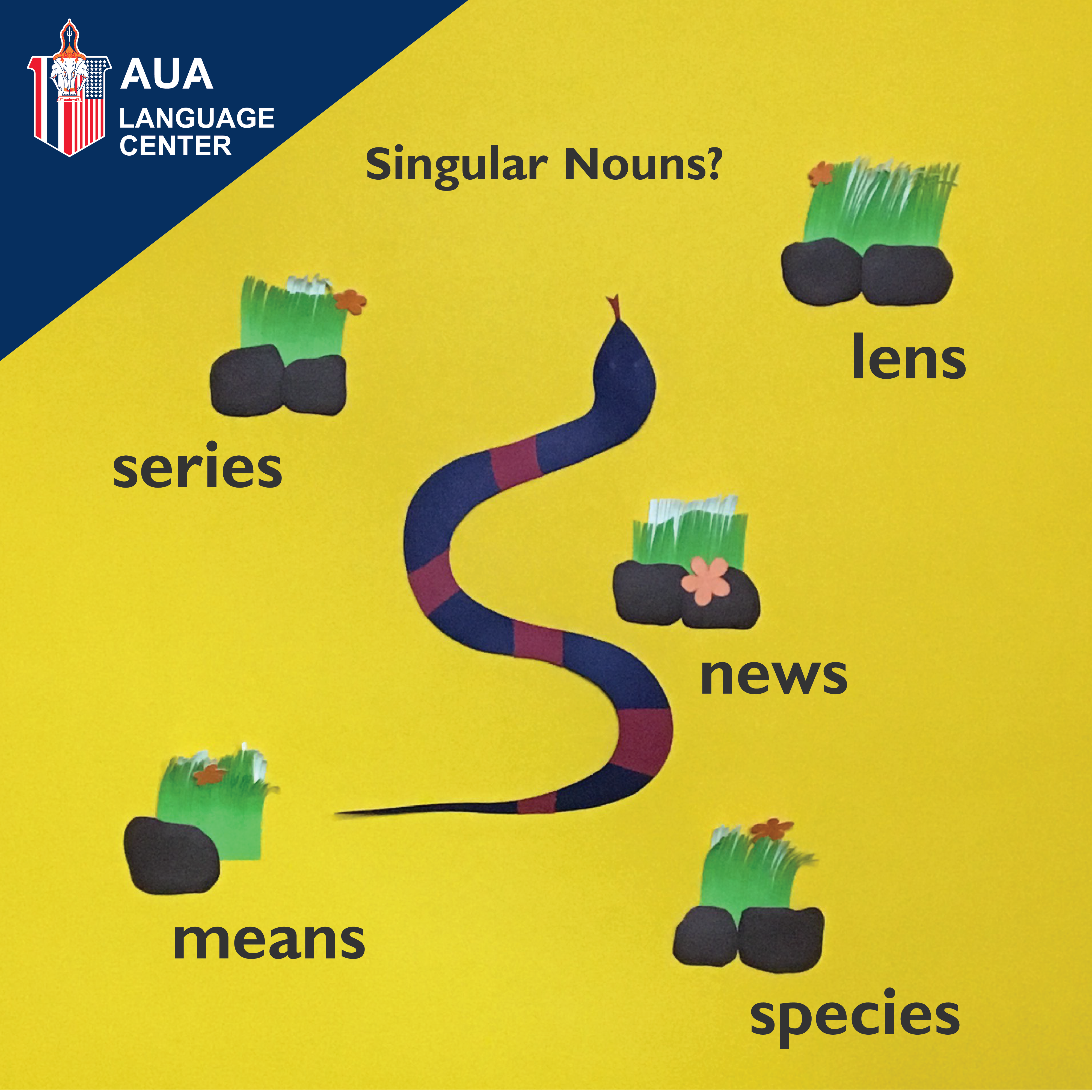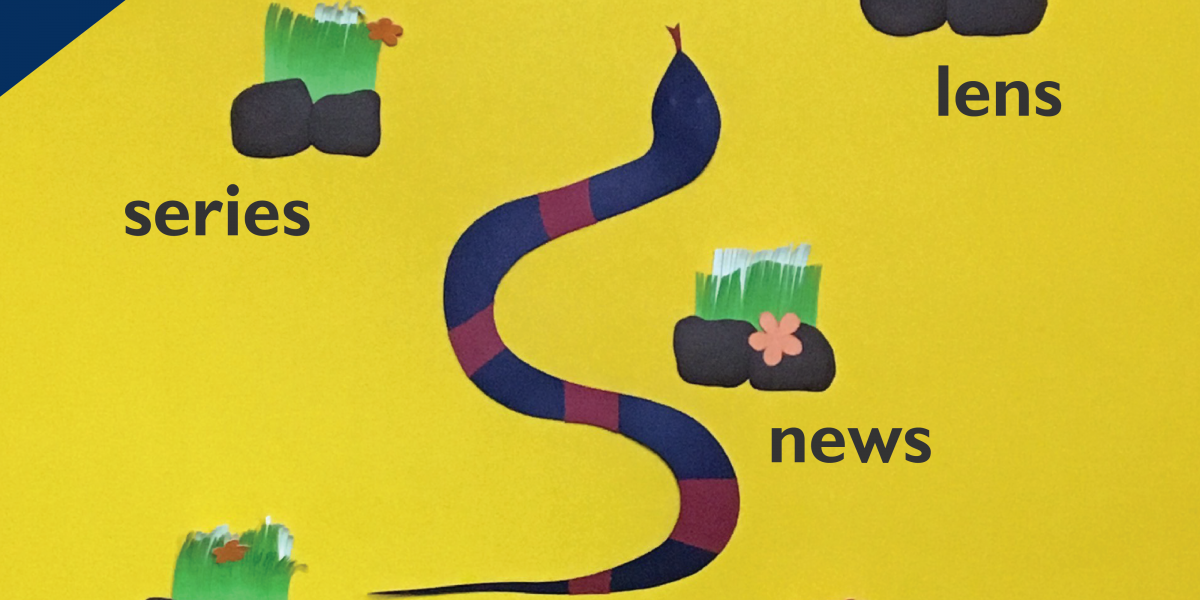
- Singular nouns that end in -s : ขึ้นชื่อว่าภาษาแล้ว คงไม่พ้นเรื่องต้องมีปวดหัวกันบ้าง พอมีกฏเกณฑ์แล้วก็จะตามมาด้วยข้อยกเว้น ไม่เว้นแม้แต่เรื่องพื้นฐานอย่างเอกพจน์พหูพจน์ก็เช่นกัน คำห้าคำที่ลงท้ายด้วยตัวอักษร -s ที่เห็นกันในรูปภาพนี่ เพื่อนๆคิดว่าเป็นเอกพจน์หรือพหูพจน์กันแน่ English grammar has many rules and exceptions, including the basic matter of singularity and plurality of nouns. Do you think the five words in the image are all singular or plural?
- Lens – เป็นคำเอกพจน์ คำพหูพจน์ของมันก็คือ lenses จึงมีบางคนสะกดคำนี้ผิดว่า lense ก็มี ส่วนคำว่า len นั้นไม่มีความหมาย: The right contact lens is lost. (คอนแทคเลนส์ข้างขวาได้หายไป)
- The term ‘lens’ is singular, while the plural form is ‘lenses’. There is no word ‘len’ in English.
- Series – ได้ทั้งเอกพจน์ ในความหมายเป็นหนึ่งชุดเดียวกัน(one set) และพหูพจน์ ในบริบทว่ามีจำนวนชุดของสิ่งนั้นๆอยู่จำนวนมากกว่าหนึ่ง (คำว่า serieses ที่ชี้ชัดว่าเป็นพหูพจน์นั้นแทบไม่พบการใช้ : All of these soap opera series are dramatic, but this series is the most tear-jerking of all. (พวกละครน้ำเน่าชุดเหล่านี้ล้วนแต่ดำเนินเรื่องอย่างเข้มข้น แต่ละครชุดนี้เรียกน้ำตาได้มากที่สุด)
- ‘Series’ can be either singular or plural, depending on its context.
- News – ข่าวสารถือเป็นคำนามที่นับไม่ได้(uncountable noun) จึงเป็นเอกพจน์ หากต้องการบอกเป็นรายชิ้นข่าว ใช้ลักษณะนาม อย่าง piece หรือ item นำหน้า เช่น this piece/item of news : This news is good for him. (นี่ถือเป็นข่าวดีสำหรับเขา)
- Like ‘information’, the term ‘news’ is an uncountable noun, so it is always singular.
- Means – เป็นเอกพจน์ถ้าพูดถึงวิธีอันใดอันหนึ่งโดยเฉพาะ และพหูพจน์ถ้าพูดถึงหลายๆวิธี : ตัวอย่าง เช่น a means to an end และ by all means
- ‘Means’ can be either singular or plural, depending on its context.
- Species – ได้ทั้งเอกพจน์และพหูพจน์ ขึ้นอยู่กับบริบท ตัวช่วยคือคำนำหน้านาม นอกจากนี้ ยังอ่านออกเสียงได้ทั้งแบบ ‘spe-sees’ และ ‘spe-shees’ (และยังมีคำว่า specie อีกด้วย แต่หมายถึงเงินเหรียญ) : There are many species of dogs, but only one species of humans.
- ‘Species’ can be either singular or plural, depending on its context. The term’s accompanying determiner/article can help with correct identification. The term ‘specie’ exists, but it means money in the form of coins, and it is very rarely used.
- นอกจาก5คำนี้แล้ว ยังมีคำอื่นๆอีกเช่น
- Besides the five presented nouns ending in -s, there are many more, including:
- General terms: statistics, dynamics, acoustics, barracks, crossroads, headquarters
- Diseases: measles, rabies, diabetes
- Fields of study and occupations: economics, ethics, linguistics, politics, physics
- Games and sports: gymnastics, dominoes, darts, cards, billiards, draughts
- สำหรับคนที่สนใจค้นคว้าต่อลึกซึ้งทางคำหมวดหมู่นี้ ดูได้จากหัวข้อ plurale tantum



